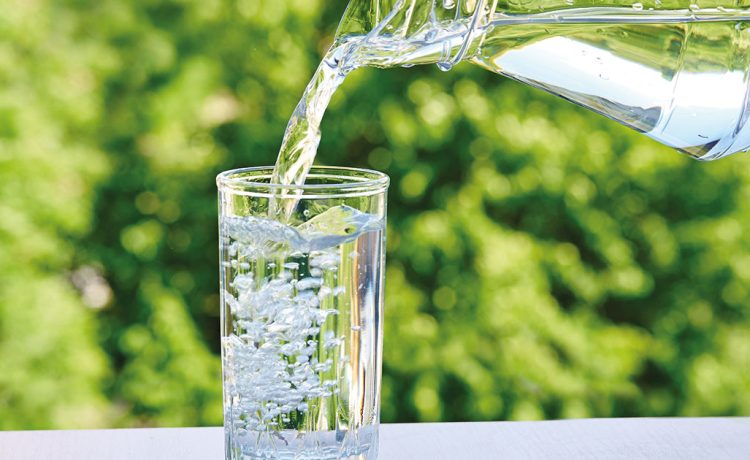Throughout history, water has been an essential element for human survival. However, our modern-day obsession with optimal hydration is primarily a product of the 21st century.
Water constitutes a significant portion, ranging from 50 to 70 percent, of our body weight. It plays a crucial role in all bodily processes and functions. However, it was the rise of bottled water in the 1990s that fueled Americans’ preoccupation with hydration, largely due to the influence of Madison Avenue advertising executives. They successfully convinced us to spend money on something that is readily available to most people for free.
Drinking water is not just promoted as a means to maintain healthy bodily functions. It is positioned as a miraculous cure-all, believed to improve every aspect of our health: from boosting mood and moisturizing the skin to increasing energy levels and enhancing memory and concentration. “Drink water” has become the go-to answer for any wellness concern, creating the perception that we are chronically dehydrated. As a result, we rarely leave home without our trusty water bottles.
Despite the fervor surrounding hydration, scientific evidence supporting these claims is surprisingly limited. Interestingly, the longstanding belief that everyone should consume eight glasses of water per day lacks substantial scientific backing as well.
So, the question arises: Are we drinking enough water? How much water do we actually need? And why does it even matter? The answers to these questions are not as straightforward as they may seem.
Why We Need Water
The Many Benefits of Hydration
Water is essential for the proper functioning of every cell, tissue, organ, and system in the human body. It is a vital component that supports our overall health and well-being. According to Benedict Ifedi, M.D., a primary care physician and sports medicine specialist, water is to the body what gasoline is to a car. Staying well-hydrated is crucial for everyday activities, including thinking, walking, and physical exertion. Hydration is also necessary to maintain the optimal function of major organs like the heart, kidneys, and liver.
In addition to sustaining organ function, water serves several other vital functions in our bodies. It lubricates our joints, digestive tract, and mucous membranes, facilitating smooth movement and digestion. Water is responsible for transporting nutrients throughout our bodies and aids in regulating body temperature and blood pressure, ensuring optimal physiological balance, as explained by Hillary Ake, R.D., a sports dietitian with expertise in exercise science and hydration.
Proper hydration also has an impact on our brain function. Although there is some scientific evidence suggesting that even mild dehydration can influence concentration, critical thinking skills, memory, mood, and energy levels, further research is required to fully comprehend this connection. Moreover, researchers are just beginning to explore the relationship between hydration and mental health. Limited evidence suggests that adequate fluid intake may reduce the risk of depression in adults, while dehydration may contribute to elevated levels of cortisol, commonly known as the “stress hormone.”
Overall, water plays a vital role in our bodies, supporting physical and mental well-being. Understanding the importance of hydration helps us prioritize staying adequately hydrated for optimal health and functioning.
Hydration’s Link to Long-Term Health
A recent study conducted by the National Institutes of Health (NIH) has provided intriguing insights into the potential impact of hydration on longevity and the development of chronic illnesses. Published in the journal eBioMedicine on January 2, 2023, the study analyzed data from 11,255 adults collected over a span of 30 years. The findings suggest that individuals who maintain sufficient hydration levels may have a reduced risk of various chronic conditions, including heart failure, stroke, lung disease, diabetes, and dementia.
The study’s results highlight the importance of adequate hydration for overall health and well-being. Chronic dehydration can lead to kidney damage over time, potentially resulting in kidney failure and end-stage renal disease that may require dialysis. Dr. Benedict Ifedi, who was not involved in the study, emphasizes that kidney dysfunction can disrupt the body’s fluid regulation, impacting other major organs such as the heart.
While the correlation observed in this research provides valuable insights for medical practice and personal behavior, it is essential to recognize that further studies are necessary to definitively determine whether maintaining optimal hydration levels can prevent specific diseases and extend our lifespan. Continued scientific investigation will help expand our understanding of the relationship between hydration, chronic illnesses, and longevity, enabling us to make informed decisions about our health.

The Role of Electrolytes
When discussing hydration, electrolytes often enter the conversation. Sports drink commercials may portray electrolytes as performance-enhancing additives available to anyone in the beverage aisles of supermarkets. However, the truth is that electrolytes are essential for everyone, regardless of athletic abilities.
Electrolytes are minerals present in our blood and other body fluids, possessing positive or negative electric charges. Dr. Benedict Ifedi explains that common electrolytes include calcium, potassium, magnesium, sodium, chloride, and phosphorus. These minerals play a crucial role in regulating chemical reactions in the body and maintaining fluid balance.
During physical activity or warm conditions, we naturally sweat, resulting in the loss of electrolytes. Sweat serves as a means of thermoregulation, as the evaporation of sweat cools the skin and helps maintain normal body temperature. Sweat primarily consists of water from our blood, along with electrolytes, predominantly sodium and chloride, as explained by Hillary Ake, a sports dietitian.
The good news is that for most individuals, the electrolytes they need can be obtained through the food and beverages consumed throughout the day, eliminating the necessity for sports drinks or specialized hydration products to replenish these minerals. However, there are exceptions to this, which will be further explored shortly.
It is important to note that on days when we engage in physical activity and sweat or when we are ill and experience increased fluid loss, we will need to consume more fluids. However, even on less active days, maintaining sufficient hydration is crucial to keep our bodies functioning optimally and to replenish the water naturally lost through activities such as breathing, sweating, urination, and bowel movements, as highlighted by Dr. Ifedi.
We Need Water to Live, But It’s Not a Magic Cure-All
Water is undeniably essential for our overall health, playing a vital role in numerous bodily functions. However, the message surrounding hydration has evolved beyond its fundamental importance and shifted towards sensationalism. We have moved past the simple understanding that proper hydration is necessary for survival and entered a realm where water is portrayed as a panacea for all health, wellness, and beauty issues, with the belief that more water is always better. Consequently, everyday functions associated with hydration have been elevated to exclusive perks for those who possess specialized knowledge, access to premium products, or the ability to consume copious amounts of water.
One common claim is that staying hydrated enhances concentration and memory. In reality, drinking water alone will not grant you superhuman cognitive abilities. However, it can help prevent dehydration, which may affect your ability to focus. It is important to recognize that some of the supposed “benefits” of hydration, such as the belief that drinking water leads to supple and moisturized skin, lack scientific evidence to support them. While these claims are relatively harmless, it is crucial to separate fact from fiction when it comes to the benefits attributed to hydration.
In summary, while hydration is undoubtedly vital for our well-being, it is important to approach the topic with a critical eye and rely on evidence-based information. Understanding the true role of water in our bodies can help us make informed choices and avoid falling prey to sensationalized claims about hydration.






